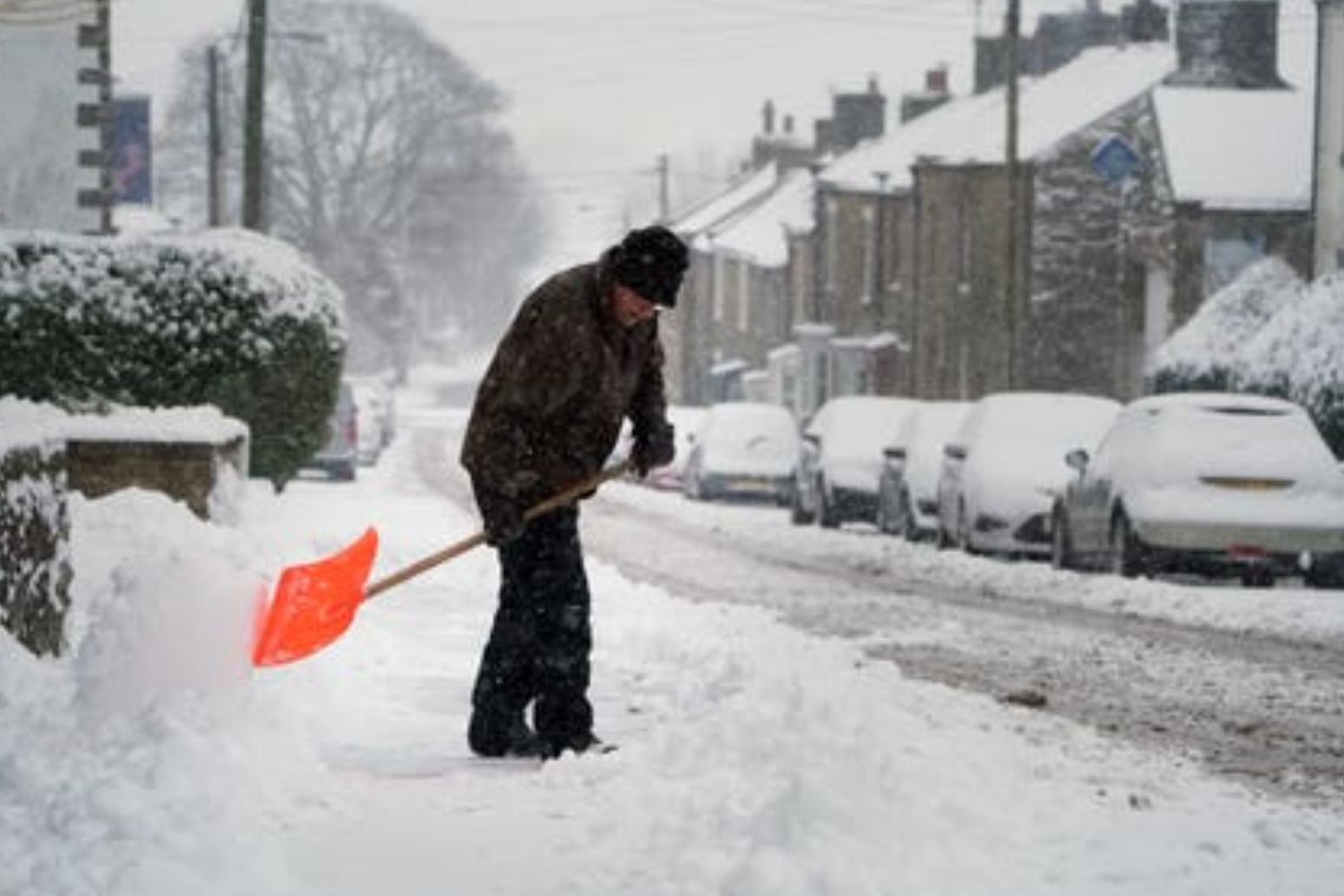This website uses cookies so that we can provide you with the best user experience possible. Cookie information is stored in your browser and performs functions such as recognising you when you return to our website and helping our team to understand which sections of the website you find most interesting and useful.
Coldest January in 10 years as wintry weather causes disruption
02/02/2021

Last month was the coldest January across the UK in 10 years, with more wintry weather expected to cause disruption this week. There was heavy snowfall in parts of northern England overnight, causing the closure of a major road near Rochdale, Lancashire, when vehicles became stuck and a lorry jack-knifed.
Rural communities have been warned they are at risk of becoming cut off, while widespread travel disruption is likely.
The Met Office said January had an average temperature of 2.2C, making it the coldest across the UK since 2010 when the average UK January temperature was 0.9C.
It has also been the coldest calendar month since March 2013 which also recorded an average temperature of 2.2C.
The coldest January on record was 1963 with a mean temperature of minus 1.9C.
There is a mix of temperatures expected across the UK on Tuesday, with around 6C expected in Manchester, around 5C in Belfast, around 3C in Edinburgh and Newcastle, and as high as 13C expected in London and 12C in Cardiff.
But an amber weather warning for snow is in force across much of South Yorkshire, and parts of Derbyshire, West Yorkshire and Greater Manchester which will last until 1pm on Wednesday.
Between 3cm and 8cm of snow is likely across the area, with 10cm to 15cm possible in areas above 200 metres.
Overnight, vehicles became stuck on the eastbound M62 near Rochdale, between junction 21 for Milnrow and junction 22 for Denshaw, leading to a temporary closure of the carriageway, and a lorry jack-knifed on the same motorway westbound between junction 23 and junction 22 in the early hours.
Forecasters said motorists who brave the roads are at risk of becoming stranded, while rail and air cancellations are likely.
Power cuts and disruption to mobile phone coverage are also expected, while rural communities face being cut off completely.
The snow is expected to move north over the course of Tuesday morning, before clearing and becoming brighter from the south in the early afternoon.
Over the next seven days, much of Scotland is also bracing for icy and snowy conditions.
Elsewhere, there is a yellow weather warning for rain and snow across Co Derry and Co Antrim in Northern Ireland in force until midday on Tuesday, meaning flooding is possible.
An alert for snow and ice is also in place from central Scotland down to the Midlands until midnight on Tuesday, which is likely to affect public transport and motorists.
Between 5cm and 10cm of snow could fall over higher ground in southern Scotland and northernmost counties in England with the possibility of 20cm or more across the highest roads.
A concentrated band of heavy rain running from County Durham through the middle of Yorkshire is due to fall between 6pm on Tuesday and 4am on Wednesday bringing travel delays and localised flooding.
Over the later half of the week, a yellow warning for snow is in place in northern Scotland until 6am on Saturday, potentially leading to rural communities being cut off.
It is a much milder picture further south, with temperatures hitting 10C (50F) in Cornwall on Monday compared with lows of minus 7C (19.4F) in northern Scotland.
With the milder weather comes persistent rain and multiple flood risks.
There are more than 50 flood warnings and almost 150 flood alerts from the Environment Agency in place across England, while Natural Resources Wales has issued four flood alerts.
Speaking about last month being the coldest January since 2010, Dr Mark McCarthy, head of the Met Office’s National Climate Information Centre (NCIC), said: “January 2021 has been dominated by colder-than-average weather with only brief milder interludes, but what does this cold winter mean in the context of climate change and a warming planet?
“Well, a winter month as cold or colder than January 2021 used to occur in approximately seven out of 10 winters through the 20th Century.
“In more recent decades this has dropped to around three in ten. So although we are still subject to cold weather in winter, these cold spells tend not to be as severe or as frequent as in the past.”
Published: by Radio NewsHub



